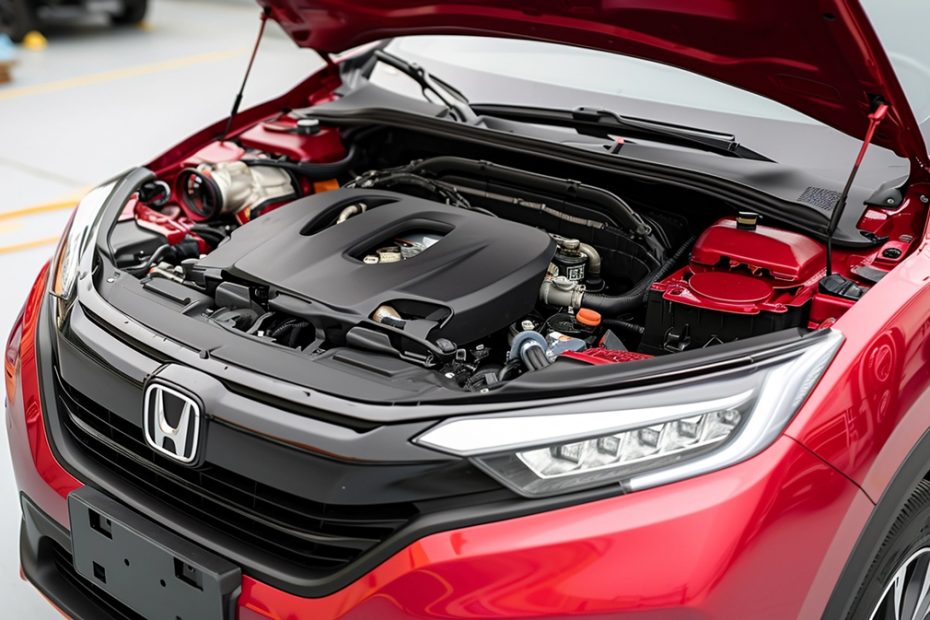What is a fuel filter?
A fuel filter is an essential component of a vehicle’s fuel system. Its primary function is to prevent contaminants and impurities from entering the engine and causing damage. By filtering out dirt, rust, or debris, the fuel filter helps ensure that only clean fuel reaches the engine, allowing it to run smoothly and efficiently.
Here are a few key points to help you understand the role and importance of a fuel filter:
- Filtering Contaminants: The fuel filter sits in the fuel line between the fuel tank and the engine. As fuel flows through the filter, it passes through a fine mesh that traps particles like dirt, rust, or other debris. This prevents these contaminants from reaching the engine and causing clogs or damage to fuel injectors or other components.
- Preventing Engine Damage: Without a fuel filter, substances like dirt or rust could potentially enter the engine, leading to clogged fuel lines, reduced fuel efficiency, and possible damage to the fuel injectors or other critical engine components. A clogged fuel filter can disrupt the fuel flow, causing engine misfires, hesitation, or even stalling.
- Maintaining Fuel Efficiency: The fuel filter plays a crucial role in maintaining the efficiency of a vehicle’s fuel system. By keeping contaminants out, it helps ensure optimal fuel flow and combustion, which in turn helps improve fuel efficiency. A clean fuel filter allows the engine to perform at its best, maximizing the power output and minimizing fuel consumption.
- Prolonging Engine Life: Regularly changing the fuel filter is essential for prolonging the life of your engine. Over time, the filter can become clogged with debris, compromising its ability to effectively filter the fuel. A clogged fuel filter can introduce harmful substances into the engine, leading to increased wear and tear. By regularly replacing the fuel filter, you can help prevent unnecessary damage and extend the lifespan of your engine.
A fuel filter plays a vital role in the proper functioning and longevity of a vehicle’s engine. It filters out contaminants and impurities, preventing them from entering the engine and causing damage. Regularly replacing the fuel filter is essential maintenance to keep your fuel system running smoothly and preventing potential fuel system problems.
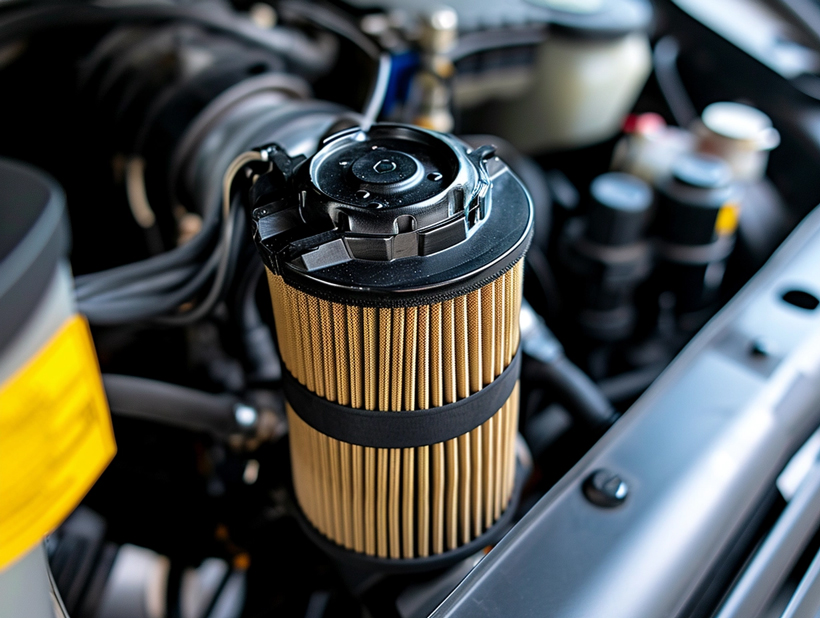
Why is it important to change your fuel filter?
In maintaining a vehicle’s fuel system, changing the fuel filter is an essential task that should not be overlooked. Regularly changing the fuel filter helps prevent potential fuel system problems and ensures the smooth and efficient operation of your car. Let’s dive into why changing your fuel filter is so important:
1. Protection against Contaminants
The fuel filter serves as a barrier between the fuel tank and the engine, filtering out contaminants and impurities that can seriously damage your vehicle’s internal components. Over time, dirt, rust, and other debris can accumulate in the fuel tank. Without a fuel filter, these particles can make their way into the engine, leading to clogs in the fuel injectors or other crucial components. Changing your fuel filter regularly ensures that only clean fuel reaches your engine, reducing the risk of any damage or malfunctions caused by contaminants.
2. Enhanced Fuel Efficiency
A clogged or dirty fuel filter can hinder the flow of fuel to the engine, reducing its efficiency. When the fuel filter becomes clogged, the engine has to work harder to pull fuel through, resulting in decreased power and decreased fuel efficiency. Changing your fuel filter at the recommended intervals helps to maintain optimal fuel flow and maximize your car’s fuel efficiency. This not only saves you money at the pump but also ensures that your vehicle operates at its peak performance.
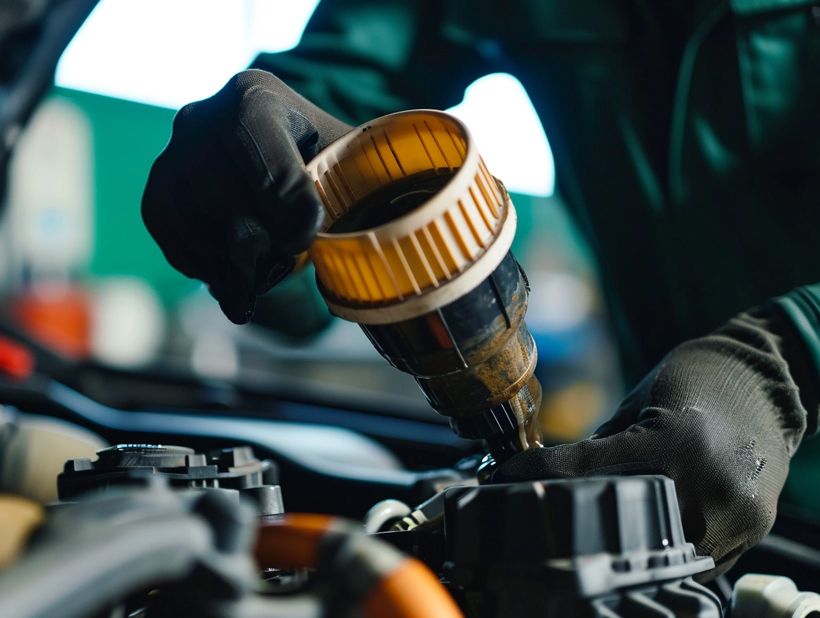
3. Prolonged Engine Life
The engine is the heart of every vehicle, and maintaining its longevity is crucial. By regularly changing your fuel filter, you can help prevent potential damage to the engine caused by contaminants. As mentioned before, particles like dirt and rust can quickly lead to clogs or damage in the fuel injectors or other engine components. A well-maintained fuel system with a clean fuel filter ensures that the engine receives clean and filtered fuel, reducing the risk of wear and tear. This can significantly contribute to prolonging the life of your engine and avoiding costly repairs in the future.
Signs that your fuel filter needs to be changed
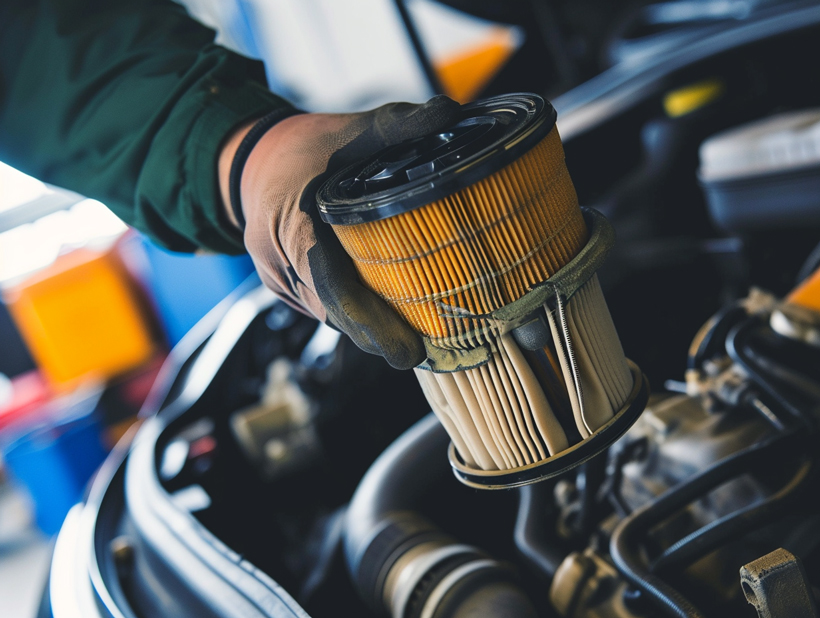
If you are experiencing issues with your car’s performance or fuel efficiency, it could be an indication that your fuel filter needs to be changed. Ignoring or neglecting this crucial maintenance task can lead to various fuel system problems, which can ultimately result in expensive repairs. Here are some signs that you should look out for:
- Decreased Fuel Efficiency: One of the most noticeable signs that your fuel filter needs to be changed is a decrease in fuel efficiency. If you find yourself having to refuel more frequently or if your fuel gauge is dropping faster than usual, it could be a result of a clogged or dirty fuel filter. A clogged fuel filter restricts the flow of fuel to the engine, causing it to work harder and burn more fuel.
- Engine Misfires or Stalls: A clogged or faulty fuel filter can disrupt the fuel flow to the engine, leading to engine misfires or even stalling. If you notice that your engine is sputtering, hesitating, or randomly stalling, especially when accelerating, it is a strong indication that your fuel filter is in need of replacement.
- Difficulty Starting the Engine: Another sign of a failing fuel filter is difficulty starting the engine. If you find yourself needing multiple attempts to start your car or if it takes longer than usual for the engine to turn over, it could be due to a blocked fuel filter. A clogged fuel filter prevents the proper amount of fuel from reaching the engine, resulting in starting issues.
- Unusual Engine Sounds: Pay attention to any unusual sounds coming from your engine, as it could be a sign of a clogged fuel filter. A clogged fuel filter can cause the engine to work harder and produce irregular sounds such as sputtering, whining, or a high-pitched noise. If you notice any abnormal engine noises, it is best to have your fuel filter checked and replaced if necessary.
- Check Engine Light: The check engine light on your dashboard can serve as an indicator for various issues, including a problematic fuel filter. If the check engine light illuminates and stays on, it is recommended to have your vehicle inspected by a professional. They can use diagnostic tools to determine if a faulty fuel filter is the cause of the problem.
Tools and materials needed to change your fuel filter
Changing your fuel filter is an important maintenance task that can prevent fuel system problems and keep your engine running smoothly. To successfully replace your fuel filter, you’ll need a few tools and materials. Here’s a list of what you’ll need:
- Safety glasses and gloves: It’s essential to protect your eyes and hands while working with fuel to avoid any accidents or injuries. Safety glasses shield your eyes from potential splashes or spills, while gloves keep your hands clean and safe.
- Vehicle owner’s manual: The owner’s manual is a valuable resource that provides guidance specific to your car’s make and model. It will often include detailed instructions on how to locate and replace the fuel filter, making your job easier and more efficient.
- New fuel filter: You’ll need a replacement fuel filter that matches the specifications of your vehicle. Check your owner’s manual or consult with a professional to ensure you purchase the correct filter for your car.
- Wrenches or pliers: Depending on the type of fuel filter and its location, you may need a wrench or pliers to loosen and remove the connections. Having the right tools for the job will make the process smoother and faster.
- Shop towels or rags: It’s always a good idea to have shop towels or rags on hand to clean up any spills or drips that may occur during the replacement process. Keeping your workspace clean and free of fuel will help prevent any potential hazards.
- Bucket or drain pan: Before removing the fuel filter, you’ll want to have a bucket or drain pan to catch any fuel that may spill out. This will help prevent fuel from dripping onto the ground or other surfaces, ensuring a cleaner and safer working environment.
Having these tools and materials ready before you start the fuel filter replacement process will make the job easier and more efficient. Remember to consult your vehicle owner’s manual for specific instructions tailored to your car’s make and model. By taking the time to change your fuel filter, you can help prevent fuel system problems and keep your engine running smoothly.
Step-by-step guide on how to change your fuel filter
Changing your fuel filter is an essential maintenance task that can help prevent fuel system problems and ensure optimal performance of your vehicle. With a few tools and materials, you can easily replace your fuel filter at home. Follow these simple steps to get the job done:
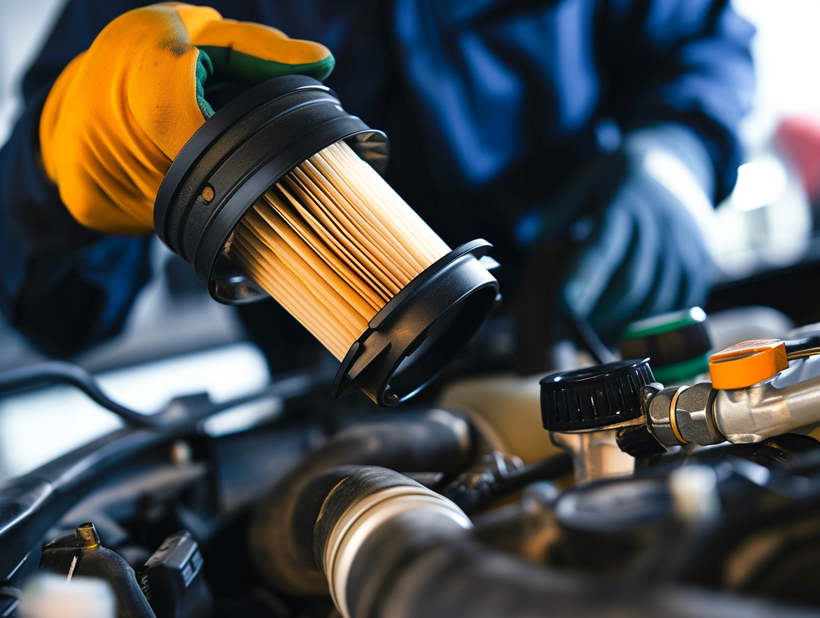
Step 1: Gather the necessary tools and materials
Before you begin, make sure you have the following items ready:
- Safety glasses and gloves to protect yourself
- The vehicle owner’s manual to locate the fuel filter
- A new fuel filter that is compatible with your vehicle
- Wrenches or pliers to remove the old fuel filter
- Shop towels or rags to clean up any spills
- A bucket or drain pan to collect any fuel that may drain during the replacement process
Having these tools and materials readily available will streamline the fuel filter replacement process.
Step 2: Locate the fuel filter
Consult your vehicle owner’s manual to find the exact location of the fuel filter. In most vehicles, the fuel filter is located along the fuel line, either under the car or under the hood. Once you’ve located the fuel filter, ensure that the engine is cool before proceeding.
Step 3: Prepare for the replacement
Put on your safety glasses and gloves to protect yourself from any potential fuel spills. It’s also a good idea to relieve the pressure in the fuel system. To do this, locate the fuel pump fuse or relay in your vehicle’s fuse box and remove it. Start the engine and let it run until it stalls. This will depressurize the fuel system.
Step 4: Remove the old fuel filter
Using the appropriate wrenches or pliers, carefully disconnect the fuel lines attached to the fuel filter. Be cautious of any remaining fuel in the lines, as it may spill. Once the fuel lines are disconnected, remove the mounting brackets or screws that secure the fuel filter in place. Gently remove the old fuel filter from its position.
Step 5: Install the new fuel filter
Take the new fuel filter and attach it in the same position as the old filter. Make sure it is securely fastened with the mounting brackets or screws. Reconnect the fuel lines to the appropriate connectors on the new fuel filter, ensuring a snug fit. Double-check that all connections are tight and secure.
Tips for maintaining your fuel filter
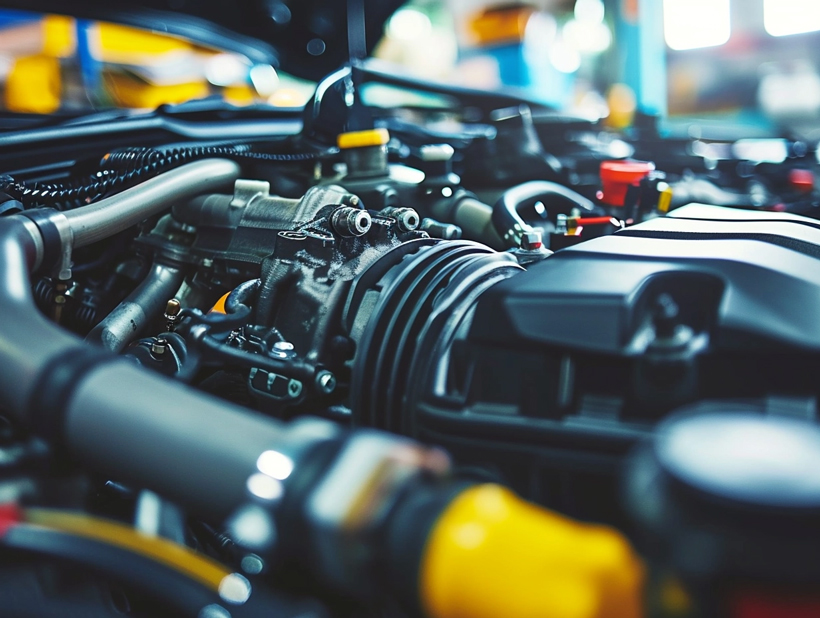
When it comes to maintaining your fuel filter, there are a few key tips to keep in mind. These tips will help keep your fuel system running smoothly and prevent potential problems down the line. Here are some important things to remember:
- Follow the manufacturer’s guidelines: Your vehicle’s owner’s manual will provide specific recommendations on when to change the fuel filter. It’s important to follow these guidelines to ensure your fuel system is functioning optimally. Ignoring or neglecting this maintenance task can lead to decreased fuel efficiency and potentially expensive repairs.
- Inspect for signs of wear: Regularly inspect your fuel filter for signs of wear or damage. This includes checking for any cracks, leaks, or clogs in the filter. If you notice any issues, it’s best to replace the filter as soon as possible to prevent further damage to your fuel system.
- Use quality fuel: Using high-quality fuel can help keep your fuel filter clean and prevent clogs. Low-quality or contaminated fuel can introduce debris and impurities into your fuel system, leading to filter clogs and reduced performance. Stick to reputable gas stations and consider using fuel additives to keep your fuel system clean.
- Avoid running on empty: Running your vehicle on low fuel levels can increase the strain on your fuel filter. This is because the filter has to work harder to deliver clean fuel to the engine. Try to avoid running your vehicle on empty and make sure to fill up regularly to maintain proper fuel system function.
To summarize, maintaining your fuel filter is essential for preventing fuel system problems and ensuring optimal performance. By following the manufacturer’s guidelines, inspecting for wear, using quality fuel, and avoiding running on empty, you can keep your fuel system running smoothly and avoid costly repairs.
Points to Remember
- Follow the manufacturer’s guidelines for fuel filter changes
- Regularly inspect for signs of wear or damage
- Use high-quality fuel and consider fuel additives
- Avoid running on low fuel levels
Conclusion
Regularly changing your fuel filter is essential for maintaining fuel efficiency, prolonging engine life, and preventing potential fuel system problems. By paying attention to signs such as decreased fuel efficiency, engine misfires or stalls, difficulty starting the engine, unusual engine sounds, and the check engine light illuminating and staying on, you can identify when it’s time to replace your fuel filter.
Neglecting this crucial maintenance task can result in various fuel system issues and expensive repairs. However, with the right tools and materials, you can easily replace your fuel filter following our step-by-step guide.
To ensure the longevity of your fuel filter, it’s important to follow the manufacturer’s guidelines for filter changes, regularly inspect for wear or damage, use high-quality fuel and consider fuel additives, and avoid running on low fuel levels.
By adhering to these tips, you can keep your fuel system running smoothly and prevent costly repairs. Take the time to maintain your fuel filter, and you’ll enjoy optimal engine performance and fuel efficiency for years to come.
